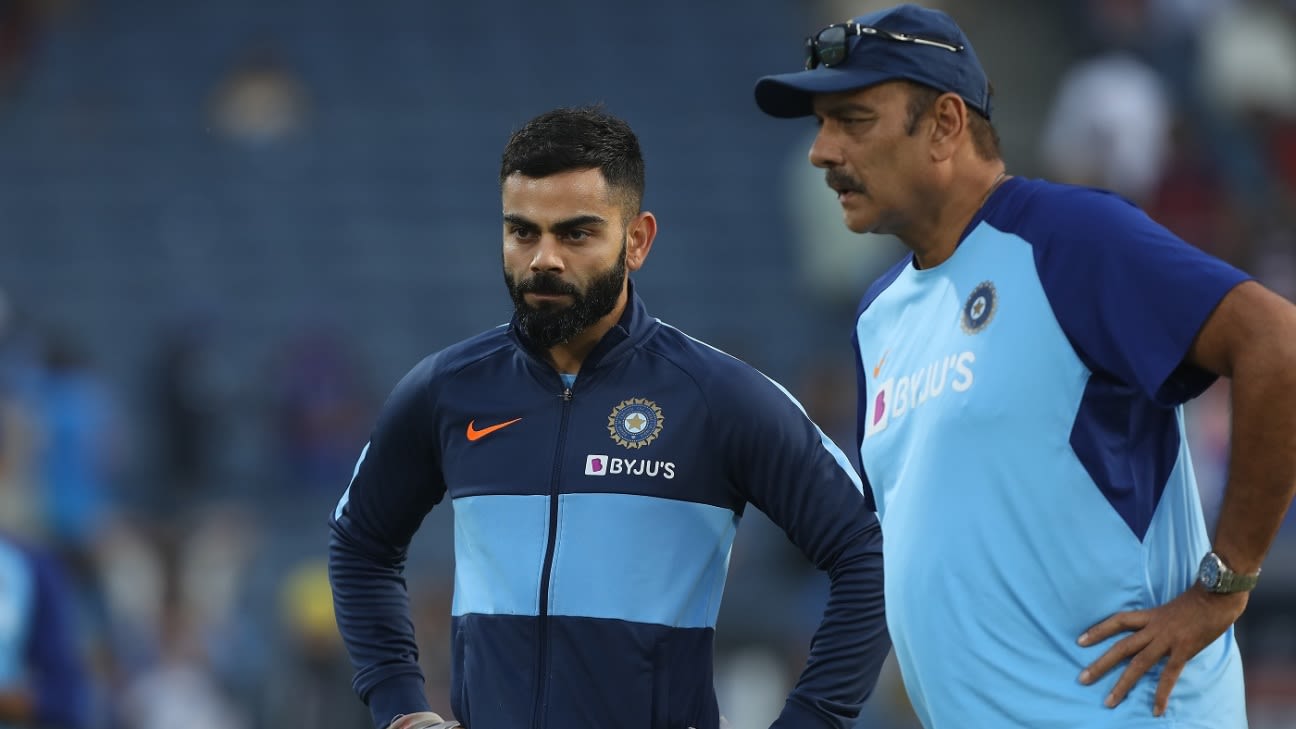India coach Ravi Shastri believes cricket should look at keeping world events on hold and instead prioritise domestic and bilateral cricket to get players back in the groove once sport resumes. Looking at it from India’s perspective, he prefers the IPL and bilaterals to take precedence once the federal government deems it safe for sport to resume.
“I wouldn’t put too much emphasis on world events right now,” Shastri told the Times of India on Friday. “Stay at home, ensure domestic cricket comes back to normal, cricketers at all levels – international, first-class etc – all get back on the field. That’s the most important bit. Second: Start with bilateral cricket.”
Shastri’s comments come even as the ICC continues to deliberate the status of the men’s T20 World Cup in Australia in October-November. While cricket has come to a grinding halt worldwide, since March due to Covid-19, governments around the world have started looking at ways to relax lockdown rules for sport to resume.
In April the BCCI indefinitely postponed the IPL, but plans to host it later this year subject to a free window emerging. Incidentally, Jay Shah, the BCCI secretary, called for deferment of the World Test Championship at the ICC’s chief executive committee (CEC) meeting (via conference call) in April.
At that meeting the CEC had agreed to “collectively review” the FTP until 2023 with a “view to rescheduling” as much cricket as possible affected by the pandemic.
“If we (India) had to choose between hosting a World Cup and a bilateral tour, obviously, we’d settle for the bilateral,” Shastri said. “Instead of 15 teams flying in, we’d settle for one team flying in and playing an entire bilateral series at one or two grounds.
“When cricket resumes, we could give the IPL a priority. The difference between an international tournament and the IPL is that the IPL can be played between one or two cities and the logistics will be easier to manage.
“The same thing with bilaterals – it’ll be easier for us to tour one country and play there at specific grounds than 15-16 teams flying in during these times. The International Cricket Council (ICC) needs to look at this objectively.”
